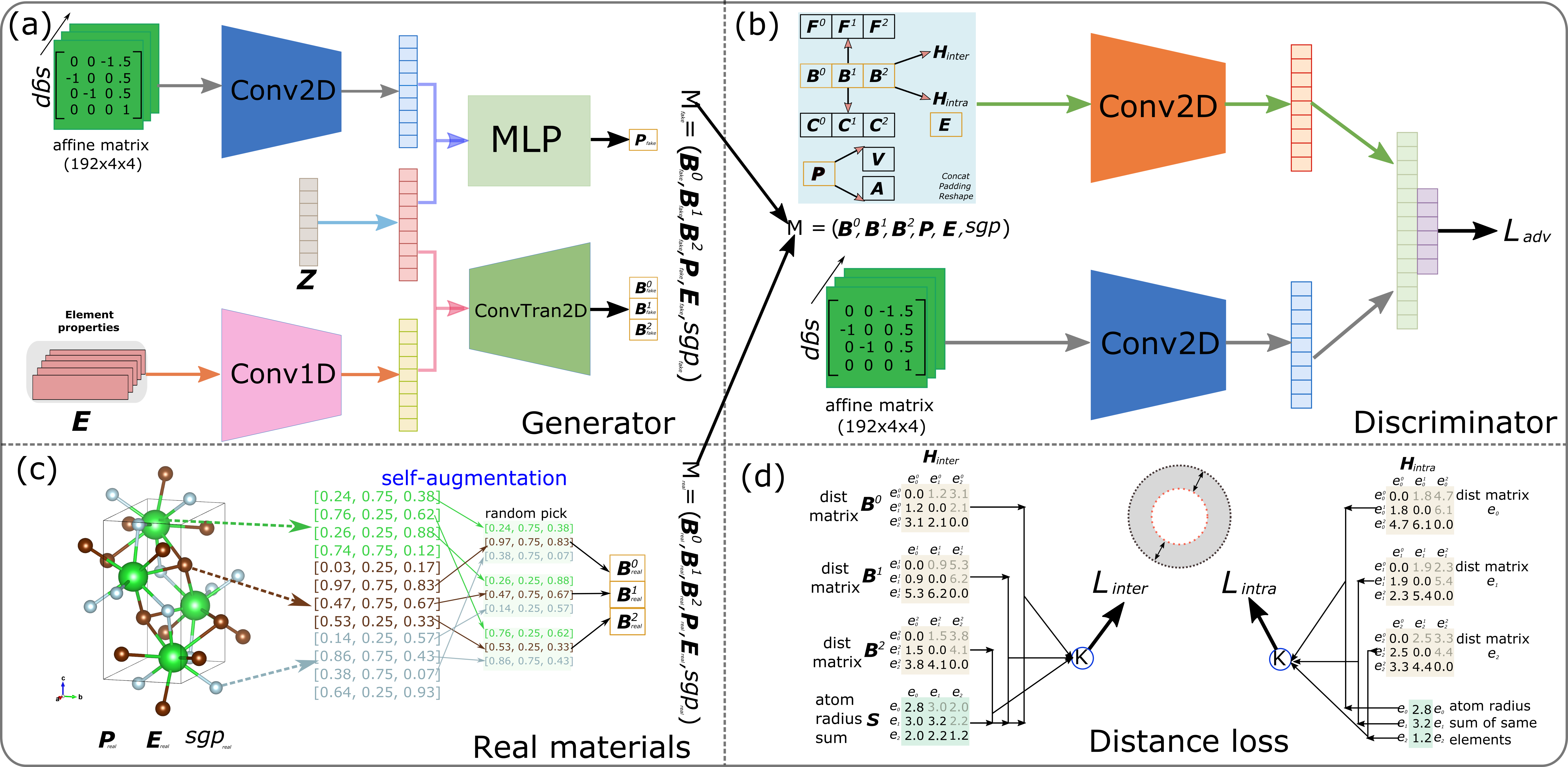Physics Guided Generative Adversarial Networks for Generations of Crystal Materials with High Symmetry Constraints
Created by Yong Zhao
This repository contains the implementation of generation code of PGCGM. If you want to try the code quickly, you run it on Google Colab. The colab link is here PGCGM Colab. After click the link, first download the datamodel.zip file and upload to your colab drive. And then Runtime/runall menu.
The following installation guide is for running our model on your local machine.
we recommend that you build a virtural environment running the code. Below are steps that can install the dependent packages. The installation has been tested under Ubuntu Linux with Nvidia 2080Ti and Nvidia 3090 GPUs.
conda create -n pgcgm python=3.7
conda activate pgcgm
use 'which' command to check folder of pip3 is located within the actual env pgcgm folder. It should be somewhere like if you are using miniconda:
which pip3
~/miniconda3/envs/pgcgm/bin/pip3
or
$HOME/.conda/envs/pgcgm/bin/pip3
pip3 install pymatgen==2022.0.6
pip3 install pickle5
Install pytorch from pytorch web based on your python & cuda version. For example,
For miniconda
pip3 install torch==1.7.1+cu110 torchvision==0.8.2+cu110 torchaudio==0.7.2 -f https://download.pytorch.org/whl/torch_stable.html
If your machine has no GPU, use this:
pip3 install torch==1.7.1+cu110 torchvision==0.8.2+cpu torchaudio==0.7.2 -f https://download.pytorch.org/whl/torch_stable.html
Step3: Once you install all those packages, you just run below commands to generate crystal structures:
git clone https://github.com/MilesZhao/PGCGM.git
cd PGCGM
./sh/gen.sh
ls ternary_final_cifs
Your generated cif files are located in the ternary_final_cifs folder.
